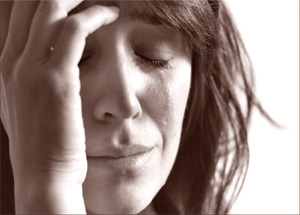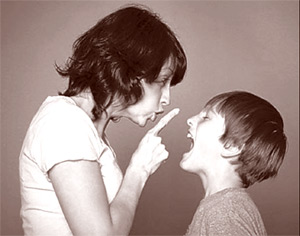|
Suffering in silence:
When children abuse parents
By Lionel WIJESIRI
The word ‘abuse’ is so common these days that when you read the title
of this story, your mind would prepare you to read an article about the
horrors of parents who hurt their
 children.
If so, you would not be alone! children.
If so, you would not be alone!
While doing some unrelated research on the newspapers last week, I
came across news story after news story about child abuse. I tried a few
websites with the appropriate search terms. All the pages documented the
truly awful methods of abuse that parents perpetrate on those in their
care. I did not find any article or website story that discussed
children who abuse their parents. The voices of parents who had been
harmed by their children seemed to whisper rather than scream.
The abuse of children is appalling. It really is, and this article is
not meant to negate that fact in any way. However, I personally know a
number of cases where children have abused parents, which are also
appalling. Particularly, because the parents themselves were often
blamed for the abuse they experienced at the hands of their children.
They are told that they are not effective parents.
No one deserves to be abused. It is called ‘abuse’ for a reason. If
it is perpetrated on a child, it is called ‘child abuse’. If it is
perpetrated on a spouse or partner, it is referred to as ‘domestic
violence’. If it is perpetrated by a co-worker, it is called
‘harassment’. But, what is it called when it is perpetrated by a child
upon a parent? Sadly, more often than not, it is called ‘poor
parenting’.
What do you do?
Suppose you are one of those affected parents! What do you do when
everything you say is criticised, doubted or considered a lie, an
example of unjustified victimhood and wrong? What do you do when
everything you say is criticised because it was not said in a particular
way, or was said at the wrong time, in the wrong tone or because it was
said at all?
What do you do when saying nothing at all elicits the same
accusations? What do you do when fault after fault is listed, created,
found? When past accidents or wrongs are held up as a mirror to justify
why such criticism is warranted?
What do you do when you are accused of thinking and doing things that
you would never think or do? What do you do when the words, opinions,
and perceptions of others are used as a set of laws against which you
are judged and condemned?
What do you do when you are shunned, trivialised, ignored, sworn at,
threatened, told to go away, yelled at? Hit back? When the only
attention you receive now is when you are being attacked yet again?
|

The abuse usually begins with verbal abuse |
What do you do when “I love you” means nothing anymore? What do you
do when you become scared? When the violence changes from emotional and
verbal, and enters the realm of the physical?
What do you do when you cry out for help, only to receive
disbelieving comments from your friends, or those who do not understand?
If this happened to you at the hands of your spouse, or your partner,
would you receive the same responses?
Conflict
Occasional conflicts between people who live together, including
parents and their children, is normal. Conflict becomes abusive when one
person uses threats, force or manipulation to gain power over the other.
Parent abuse is any act of a child that is intended to cause physical,
psychological or financial damage to gain power and control over a
parent.
Teenagers normally go through a process of trying to establish their
sense of separateness from their parents. This is called ‘individuating’
and may at times include some defiance or resistance toward authority.
There is a difference, however, between resistance and aggression,
between separating from a parent and trying to take control of a parent,
between ‘normal’ teenage behaviour and ‘parent abuse’.
Abusive adolescent behaviour ranges from mild to severe violence. The
abuse usually begins with verbal abuse. For most parents, the abuse is a
daily occurrence that follows a pattern, usually with the child showing
no signs of remorse or guilt.
Denial
Many professionals believe that parent abuse is increasing in our
society. Few statistics are available to support or contradict this
belief. Police records do not specify the relationship between the
victim and perpetrator in charges of assault. Hospitals and other
institutions such as child welfare and adolescent mental health agencies
and schools, where we would expect to hear reports of parent abuse,
often do not recognise, record or report the problem.
All abused parents experience a range of emotions, from fear of their
teenager and fear for the safety of their teenager, to guilt about
pressing police charges for assault. Most parents have difficulty
accepting that their child could be abusive towards them and may
initially deny the problem.
Shame and blame
Many parents feel depressed and filled with shame that they were not
able to produce a happy family. They question their parenting abilities,
agonise over where they went wrong, and begin to feel like failures.
Women particularly live under the threat of not meeting societal
expectations and being condemned as bad mothers.
One mother known to me said: “In this society we do not collectively
take responsibility for our children.” While parents certainly play a
major role in their child’s development, they are usually blamed for
everything that goes wrong. They, along with everyone else, buy into
this belief and often take full responsibility for their abusive child’s
actions.
In addition to feeling solely responsible, parents often feel
unsupported and isolated. They feel hopeless and helpless because they
are unable to control the situation, either because of physical danger
or their own emotional turmoil. Despair at not having a harmonious
family life and feeling isolated in the situation makes change all the
more difficult.
Family dynamics
There is a need for clear structure and leadership in families.
Parents need to know how to be in charge, to realise they have the right
to set limits, and to say, “This is my house and you can’t behave that
way in it.” They are sometimes afraid of losing the love of their teen
by enforcing rules and standards of behaviour. Sometimes parents are so
intimidated they try to avoid confrontation by allowing the adolescent
to rule the household.
When teens feel their parents are not in control, they act out
because they don’t feel safe. The developmental tasks of adolescents are
typically complex and can be difficult. For most teenagers, it is an
added burden to cope with power over their parents.
Enforcing the rules
It is normal for adolescents to go through a period of “I hate your
rules”, but the parents’ job is to rein the children in tighter and
impose the rules. Sometimes parents’ attempts to enforce house rules are
successful. However, some children become even more abusive and refuse
to obey the rules when their parents make it clear that the teen’s
behaviour is not acceptable, and they impose appropriate measures.
Popular culture also exposes children and youth to increasingly
violent images. “Attitude” - that is, a stance of being rude, hostile,
detached and aggressive - is cool. Without the boundaries, this attitude
is sometimes directed at parents.
Most parents and professionals believe that children’s basic rights
must be recognised and respected. However, most also believe that a
balance must exist between young people’s rights and their
responsibilities; teenagers are responsible for their own actions and
behaviour and must be held accountable for their conduct.
Although they may strongly resist it, adolescents need leadership
from their parents, and the adults in charge of the culture adolescents
are living in, must be held accountable for the world we have created
for them. |

